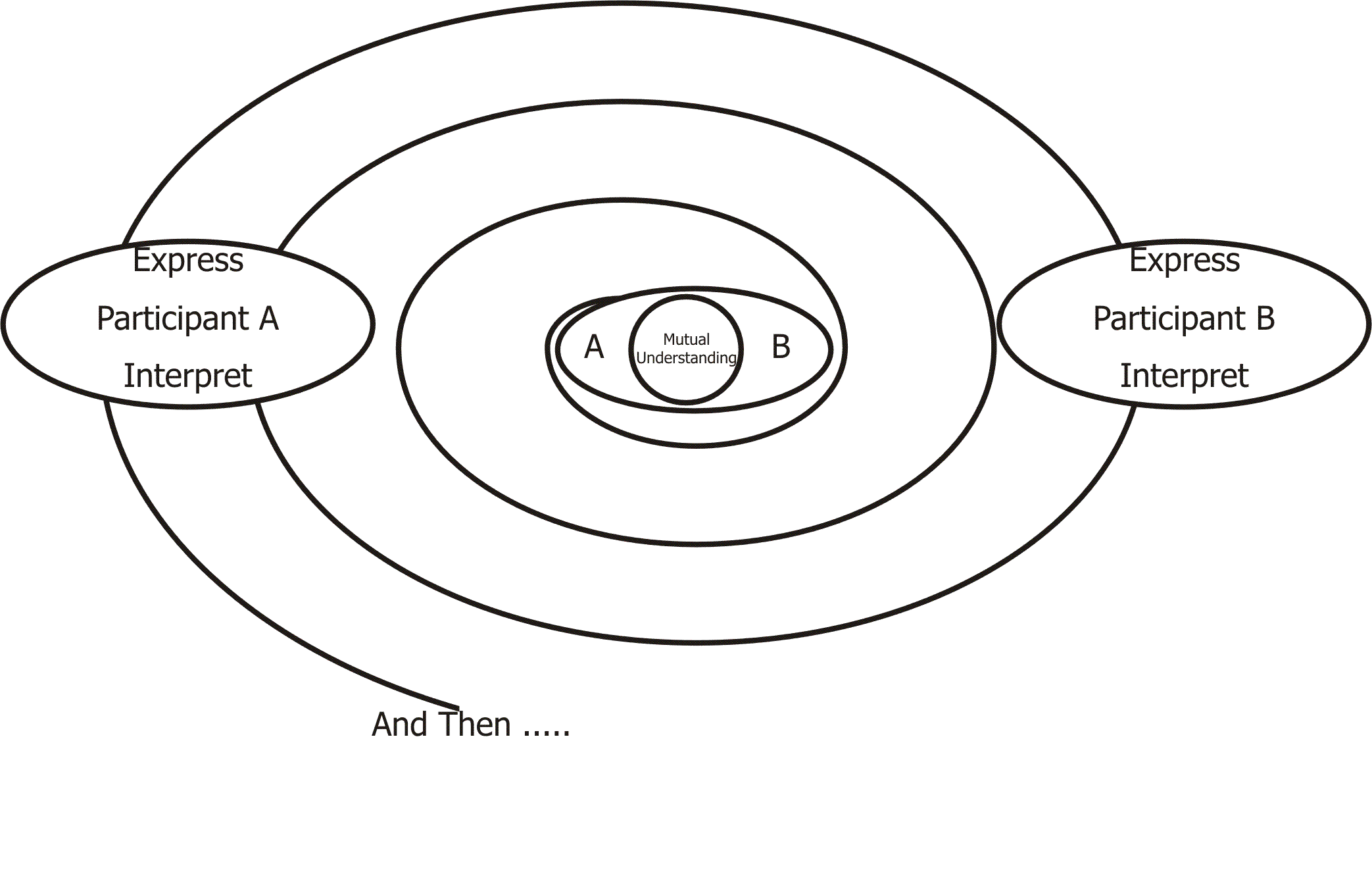Communication is the process of creating meaning between two or more people through the expression and interpretation of messages.
In order to understand interpersonal communication, we can examine the model below. Various models, linear and cyclical, have been described through the years.
The model in figure 1 is cyclical and represents communication as a process, dynamic and ongoing, so that each tiny interaction affects the whole. In the process approach to communication there is no single beginning and no single end to the interactions. Both parties are engaged in sending and receiving messages simultaneously.
Each person is constantly sharing in the process and each person affects the other. For example, a frown, smile or a nod of the head alters the feelings of the person speaking or listening.

Kincaid’s Convergence Model of Communication
Types of Communication
Interpersonal communication can be divided into three types of communication:
- Body language (non-verbal)
- Voice tonality
- Words (verbal)
According to research:
- 55% of the impact of interpersonal communication is determined by body language (non-verbal communication) – posture, gestures and eye contact.
- 38% by tone of voice and
- 7% by the content of the message or the words used in the communication process.
The implication of these findings is that most of the meaning of the message you want to convey is communicated by body language and tone of voice. Thus, it becomes an important aspect to consider if you want to increase the effectiveness of your communication skills.